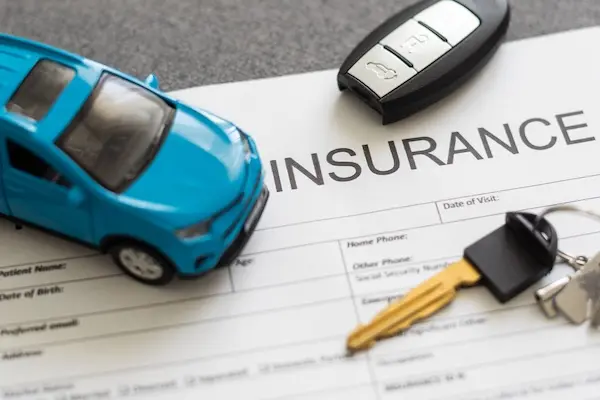Navigating the Car Accident Insurance Claims Process: What You Need to Know
Car accidents can be both physically and emotionally draining, but understanding the insurance claims process can help you navigate the aftermath with more confidence and clarity. Whether you’re dealing with minor vehicle damage or severe injuries, the process can often seem overwhelming. Fortunately, knowing what to expect from your insurance company and the claims process can significantly ease your worries. If you’ve been involved in a car accident in Charlotte, consulting a Charlotte car accident lawyer can help you manage the entire process smoothly and ensure you receive the compensation you’re entitled to.
In this blog, we’ll break down the insurance claims process step by step, so you know exactly what to expect. We’ll discuss how insurance companies evaluate your claim, the role of insurance adjusters, and what factors affect insurance payments such as actual cash value and replacement value policy. Whether you’re navigating your own claim or working with a legal professional, this guide will provide the knowledge you need to manage your insurance claim effectively.
The First Steps: Reporting the Accident
The first thing you should do after a car accident is file a claim with your insurance company. It’s essential to notify your insurance company as soon as possible to begin the insurance claims process. If the accident is severe or involves injuries, contact the authorities and file an accident report. A timely report will help ensure a smoother claims process and will provide a clear record of events. Once you report the accident, your insurance company will assign a claims adjuster or insurance adjuster to evaluate your claim.
Understanding the Role of the Insurance Adjuster
The insurance adjuster plays a key role in the claims process. Their job is to assess the damage to your vehicle and personal property and determine the appropriate payout. The insurance adjuster will inspect the damage, interview witnesses, and review any evidence related to the accident, such as the accident report and photos of the damage.
When evaluating your vehicle’s damage, the claims adjuster will calculate the actual cash value (ACV) of your car, which is determined by considering factors like the vehicle’s age, condition, and market value. If your car is totaled, your insurance company may offer you a settlement based on the actual cash value rather than the replacement value of your car. In some cases, if you have a replacement value policy, you may receive a higher payout.
If the insurance adjuster concludes that the damages are minor and repairable, they will typically provide a cash value payment for temporary repairs or assess the cost for permanent repairs to your vehicle.
What Happens After the Accident: Insurance Payments
Once the insurance company has evaluated the damage, they will make a decision regarding your insurance claim. If your vehicle is repairable, they will issue an initial payment to cover the repair costs, minus your deductible. In cases of severe damage or total loss, insurance companies may pay based on the actual cash value of the vehicle, or if applicable, the replacement value of the car.
For those with a financed car, it’s important to keep in mind the involvement of your lender or management company. If there’s a mortgage lender or other financial backer with a financial interest in the vehicle, they may also need to be part of the insurance claim process. This could mean your insurance payments will be made directly to them, especially if the payout amount exceeds the remaining balance on the loan.
Dealing with Temporary Repairs and Living Expenses
In cases where the accident leaves you without a vehicle or living accommodations, your insurance company may offer coverage for temporary repairs and additional living expenses (ALE). If your car is being repaired, most insurance companies will provide a car rental to help you maintain mobility.
The insurance claims process also includes compensation for additional living expenses if you are unable to stay in your home due to damages. For example, if the accident involves a natural disaster or severe property damage, insurance payments related to ALE can help you find temporary housing. Be sure to save all receipts related to these expenses, as they may be reimbursed by your insurance company.
Understanding the Insurance Company’s Valuation
A crucial part of the insurance claims process is understanding how your insurance company determines the value of your property. The insurance company will assess whether to pay out based on the actual cash value (ACV) or the replacement value.
If you have a replacement value policy, your insurance company will cover the full cost of replacing your damaged property, which may be higher than the actual cash value. However, if your policy only covers actual cash value, the insurance company will subtract depreciation from the value of the property.
The key distinction is that actual cash value takes into account the cash value of the property at the time of the accident, considering factors like depreciation. Meanwhile, replacement value ensures that you can purchase a new, similar item at the current market value, without any depreciation taken into account.
Dealing with Mortgage and Lender Interests
If you financed your vehicle or property, your insurance company may need to involve the mortgage lender or management company in the claims process. Since these entities hold a financial interest in your property, they may be listed as an additional payee on the claims payment check.
For example, if you’re in the middle of paying off a car loan, the insurance company may issue a claims payment check made out to both you and your mortgage lender. This ensures that the mortgage company or financial backer is protected in case there is any outstanding balance on the loan. This can also apply to personal property or other assets that are financed.
Receiving and Managing the Final Claim Payment
Once all repairs are completed or a total loss is determined, your insurance company will issue a final payment. This payment may include the remaining claim payment after deducting your deductible. If there’s a significant difference between the initial payment and the final payout, the insurance company will provide a remaining proceeds to cover the full cost of repairs or replacement.
If you’ve made temporary repairs, you’ll want to provide receipts and documentation to ensure those expenses are reimbursed through the claims process. Be sure to track your repairs, as insurance payments can sometimes take time to process. It’s important to ensure that you receive a claims payment check that accurately reflects the value of your repairs or damaged property.
Managing the Entire Claims Process Efficiently
One of the best ways to ensure your insurance claims process goes smoothly is to stay organized and keep a detailed record of all your interactions with your insurance company. Keep copies of your accident report, repair shop estimates, and contractor’s bid for permanent repairs. You should also maintain receipts for any temporary repairs or car rental costs, as these may be reimbursed.
Furthermore, ensure that you submit all required documentation in a timely manner. Failure to do so may delay the process and could affect your insurance payments. In some cases, the insurance company may need additional evidence or clarification before issuing the final payment.
What If You Don’t Agree with the Final Settlement?
If you disagree with the final payment or feel that the insurance company undervalued your claim, you have options. First, request a formal request for a re-evaluation of the settlement. If you’re unable to reach an agreement with your claims adjuster, you can file a dispute with the insurance company or consult an insurance professional.
It’s also possible to appeal the decision with the help of a Charlotte car accident lawyer, who can assist you in negotiating with the insurance company and ensure that you receive the compensation you deserve.
After You Receive the Insurance Proceeds
Once you’ve received your insurance proceeds, you can begin purchasing replacements for any personal belongings lost or damaged in the accident. If your claim involved damage to your vehicle, the claims adjuster will typically assess the exact replacement cost to help you acquire a new vehicle or make repairs.
If there’s a mortgage lender or management company involved, they may have specific requirements for how the insurance proceeds should be allocated. Be sure to communicate with your mortgage company and follow the necessary steps to release the funds.
Get the Compensation You Deserve: Start Your Insurance Claim with Confidence
If you’re feeling overwhelmed by the insurance claims process, don’t face it alone.
Contact 1Charlotte Personal Injury Lawyers today for expert guidance and support. Let us help you navigate the complexities of your claim and fight for the compensation you’re entitled to.
Reach out now for a free consultation! (704) 706-2689







